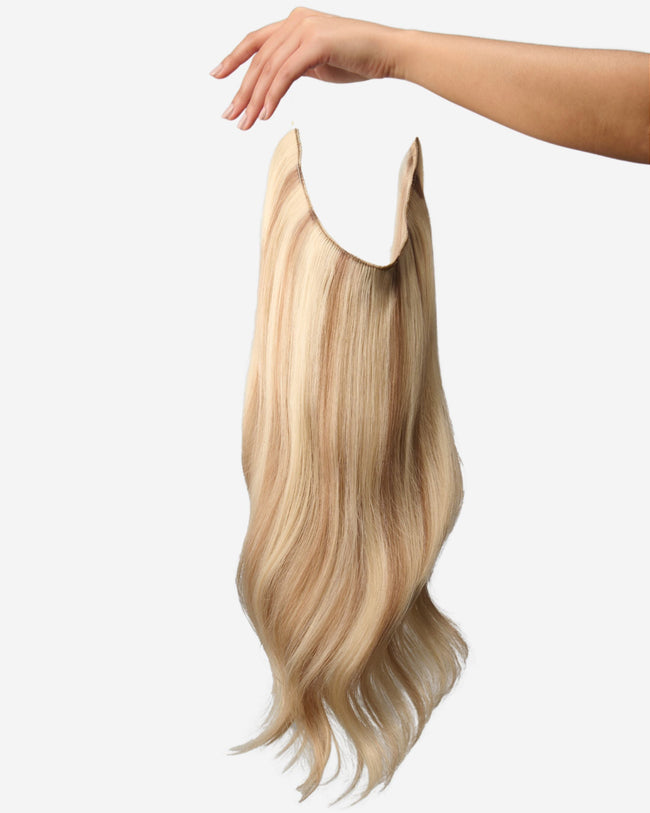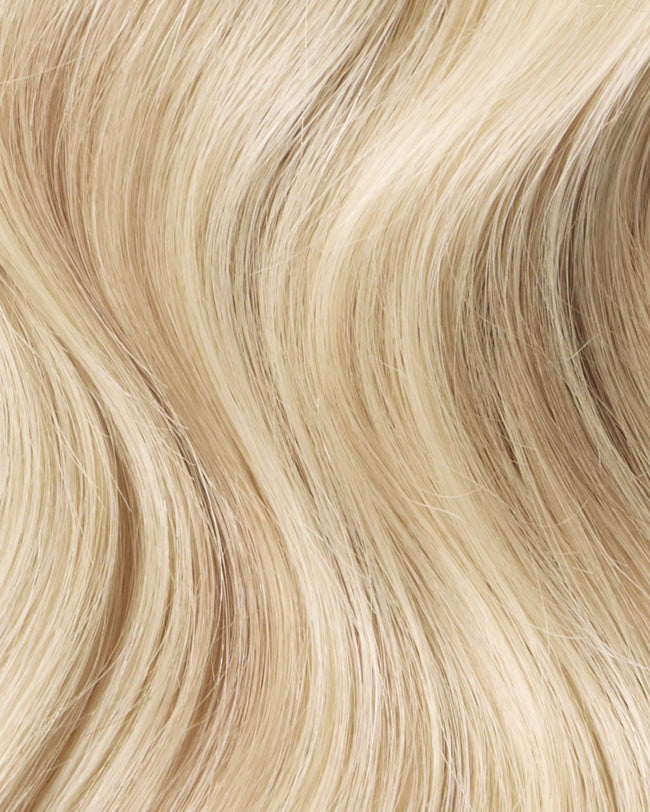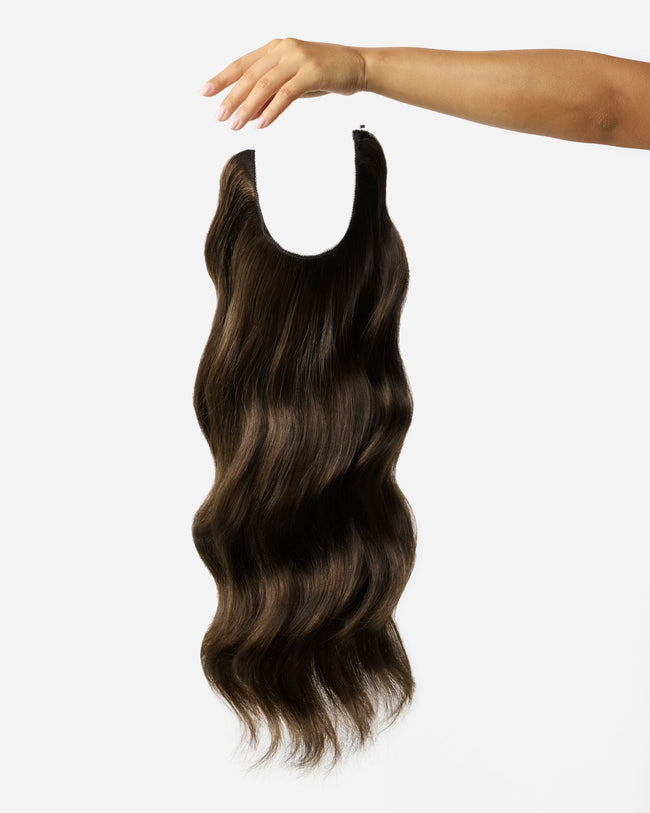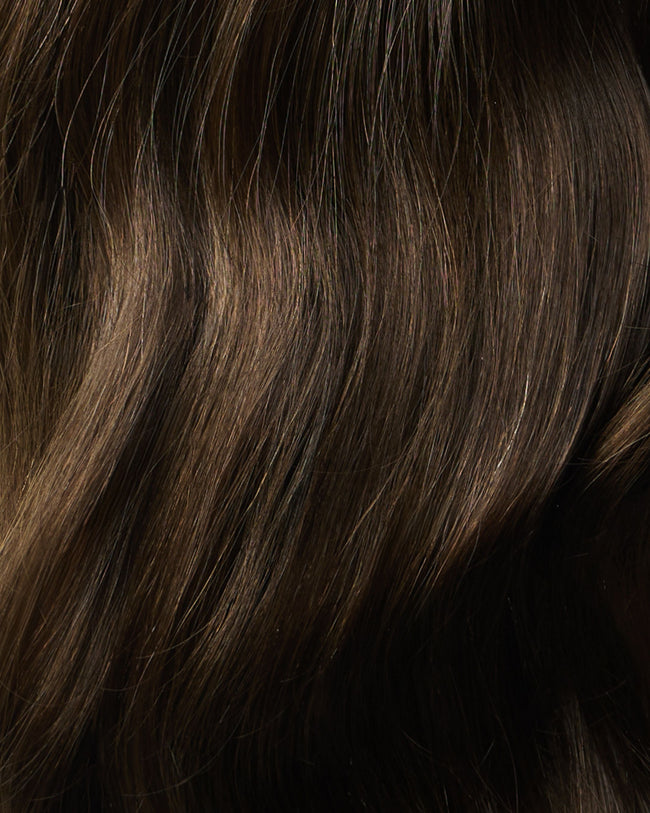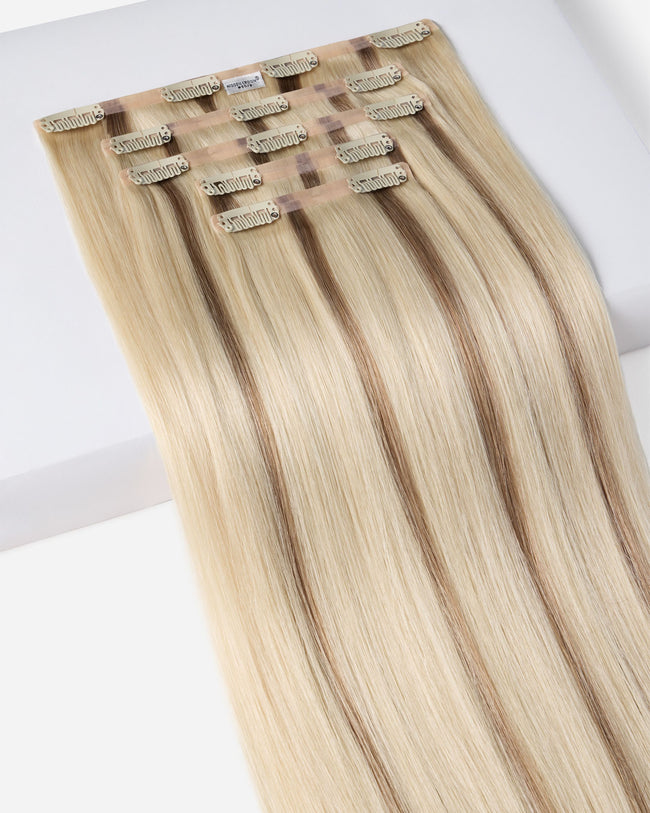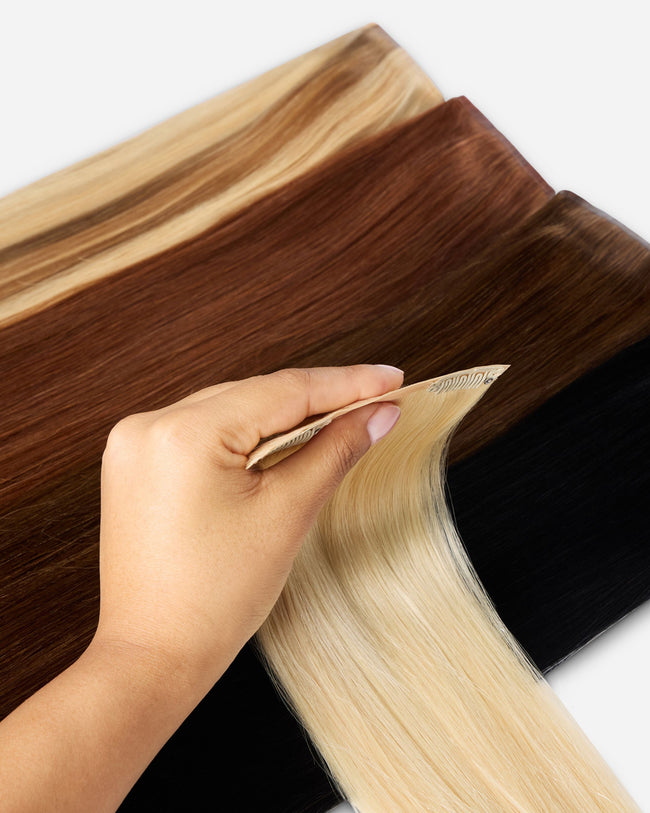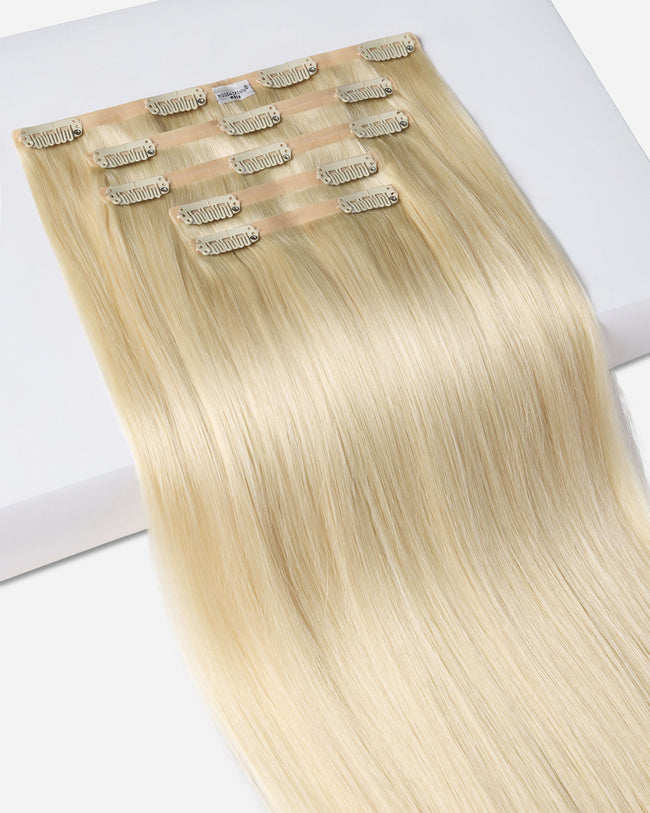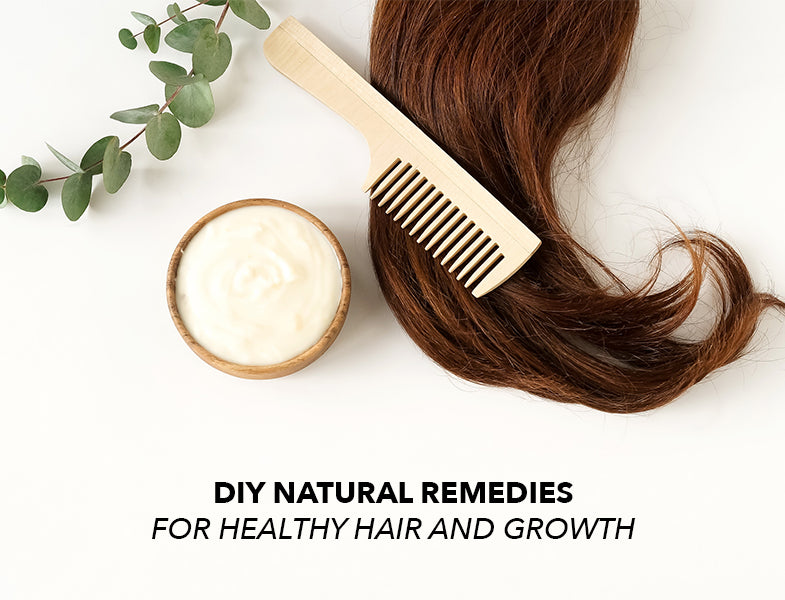
DIY Natural Remedies for Healthy Hair and Growth
At home hair treatments using natural ingredients can have real results, and change the quality - and possibly the quantity - of your hair. Specific rinses and essential oils target scalp issues, protect follicles, smooth and soften, and can create a healthy environment to promote hair growth. Start here to learn about these DIY treatments, from the benefits to the how-to’s:

Coconut Oil for healthier, stronger hair
Coconut oil is high in lauric acid, a fatty acid that is able to penetrate the hair follicles, protecting them from protein loss, which means smoother, stronger hair that is less prone to breaking. Coconut oil is best for those with fine to medium hair, and not for coarse, dry or damaged hair which could become more brittle with use. Be careful not to apply it directly to your scalp as it could not only cause irritation, but could clog the pores and actually make dandruff worse and restrict hair growth.
- Warm a small amount of coconut oil between the palms of your hands and work through dry hair from mid-shaft downward without rubbing. Wet hair is fragile and the follicles open up and are lifted in water, so sealing the protecting them with oil before washing helps retain moisture and reduces breakage.
- After applying the oil to your dry hair, proceed to shampooing and conditioning as usual.
- Repeat treatment two to three times a week for optimal benefit.

Rice Water to strengthen, add shine and detangle
Rice water has been used across Asia for centuries to maintain long, strong, shiny, tangle-free hair. Inositol which is found in rice water is able to penetrate the hair follicles healing any damage, and strengthening the hair. Because rice water contains starch, it is best suited to those with thicker hair since the potential for protein build-up can damage fine or thin hair making it brittle.
- To make your own rice water treatment use any sort of rice you have: take a 1/2 cup of rice, rinse and drain.
- Pour 1 1/2 cups of fresh water over rice, cover it with a lid and store at room temperature for 24 to 48 hours to being fermenting. Strain and save rice water for up to a week in the refrigerator.
- Transfer to a shower-safe spray bottle or plastic bowl.
- Shampoo as usual.
- Spritz or pour rice water over wet hair working it through with your fingers. Leave on for 20 minutes. Any longer will deposit more protein on the hair making it drier.
- Rinse thoroughly and condition as usual, repeating twice per week.

Essential Oils for a healthy scalp and stronger hair
Depending on your own hair concerns there are essential oils that address everything from dandruff, to damaged follicles, dryness, to hair growth. To safely use essential oils on hair and scalp, always mix a few drops into a carrier oil such as sunflower or olive oil which have little to no scent, or add to shampoo. Do not put essential oils on their own directly onto your scalp as it could cause irritation or even an allergic reaction in some people. With most oils begin by mixing a few drops into a carrier oil and massage into scalp, leave on for ten minutes and wash hair as usual to remove the oil. Here are six oils to consider based on your own specific hair needs:
- Tea tree oil: treats dandruff by reducing sebum, unplugs hair follicles, and protects hair shafts with anti-fungal and antiseptic qualities. Add 10 drops to shampoo and wash hair as usual. Repeat twice per week.
- Argan oil: adds moisture to dry hair, protects hair during heat styling, and promotes a healthy scalp which can improve hair growth. Place 8 to 10 drops of oil into the palms of your hands and press hands together to warm the oil. Massage into your scalp and through dry hair including the ends, and wrap in a towel overnight. Wash and style as usual in the morning. For an extra boost, try adding a drop of oil to your shampoo or conditioner, (but not both), each time you wash your hair.
- Geranium oil: helps reduce sebum production on scalp which promotes a healthier environment for hair growth. Add one drop to shampoo and wash as usual. Treat three times per week.
- Castor oil: used regularly, it improves the condition of the scalp while protecting the hair follicles which can promote hair growth. Place a few drops into the palms of your hands to warm, massage it into your scalp, and follow by brushing it through to moisturize and condition dry or coarse hair and to treat the scalp. It leaves behind a soft, smooth finish to hair.
- Lavender - Rosemary - Cedarwood - Thyme oils mixture: these oils are known for their hair growth potential. Lavender oil has antimicrobial properties that keep the scalp healthy and protect the follicles. Rosemary oil helps with cell rejuvenation and has been successful in showing hair growth in studies. Cedarwood oil balances oil producing glands in the scalp which promotes healthy hair growth and which in turn can help prevent hair loss. Thyme oil has anti-inflammatory properties which soothes the scalp, is known to strengthen hair, and is often recommended to help condition the scalp for treating alopecia areata and hair loss. Mix 2 to 3 drops of each oil to 2 cups of a carrier oil to create a mixture you can store and reuse for up to one week in the refrigerator. Massage well into the scalp and leave on for a minimum of 10 minutes to an hour, and follow up by shampooing. Repeat this treatment 3 to 4 times a week.

Apple Cider Vinegar rinse to treat dandruff and add shine
An all-star hair treatment is apple cider vinegar which promotes healthy hair and growth by lowering pH levels to keep them within the ideal range, and treats the scalp with its antibacterial properties. It also helps to prevent dandruff, sebum buildup, and an itchy scalp, all while adding noticeable shine.
- For those with dry hair treat once per week.
- For those with oily hair treat twice per week.
- Mix one to two tablespoons of apple cider vinegar to one cup of water and pour over hair after shampooing and conditioning. Massage into scalp. Leave on hair for three minutes and rinse off.
- If mixture is too strong or irritation occurs, dilute with more water and repeat less often.

Using natural DIY treatments that can improve the overall health, strength and appearance of your hair is a win. Choose your treatments based on your own particular hair concerns and make small adjustments to the recipes to get the best results for your hair type and needs. Have any great home remedy solutions to share that have been successful for you? Let us know!
